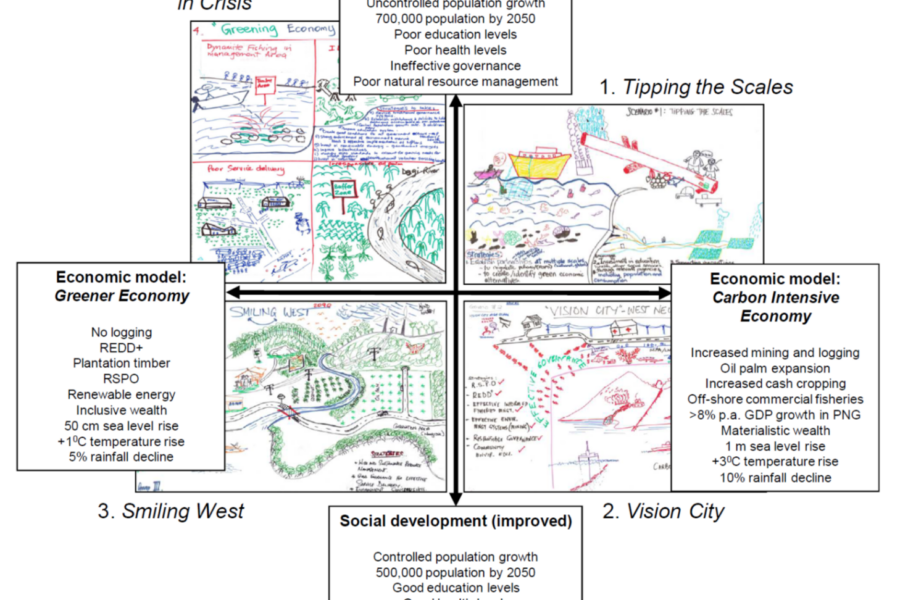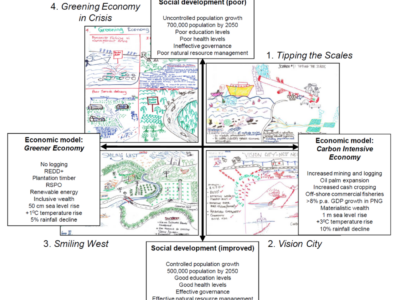The project used participatory scenario planning workshops with stakeholders from the provincial, local government and ward scales. By combining stakeholders’ knowledge of livelihoods’ drivers of change, important ecosystem goods and services, and communities’ adaptive capacity, the process explored plausible futures and generated ‘no regrets’ adaptation strategies for vulnerable communities in West New Britain, hence building the capacity of participants.
A questionnaire survey carried out before and after the workshop examined how participants’ perceptions had changed. To the statement “compared to other challenges WNB will face in the future, climate change is the most important”, the majority (65%) strongly agreed before, but this fell to 33% afterwards. The influence of population growth was felt to be more important after the workshop. To the statement “WNB’s climate adaptation policies are enabling WNB to be ready to cope with climate change”, 41% strongly agreed before, but this fell to 27% afterwards. The majority (86%) felt that the information presented in the workshop had increased their understanding of future change and how WNB can adapt, or that they were now motivated to take action.
The scenarios were made in: 2013
The scenarios look out to: 2090

